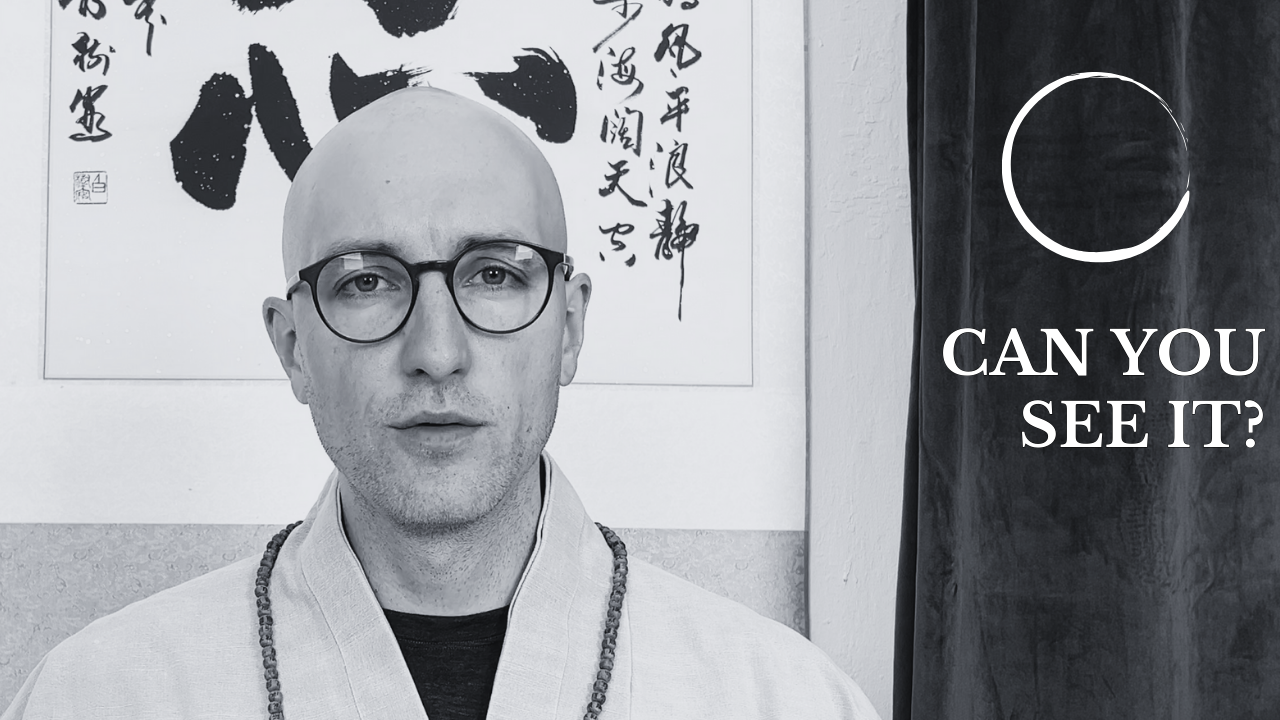Is the True Buddha Right in Front of You and You Don’t See It? (What Zen Really Teaches)
May 28, 2025
There is a belief that just encountering a true spiritual teaching is quite rare, and that attaining enlightenment is even more so. Some Buddhists and Hindus say it takes billions of kalpas to achieve Buddhahood or enlightenment.
If you don’t know what a kalpa is, it’s a term used to describe a long period of time. It’s often illustrated with the image of a bird flying over a mountain of solid rock once every 100 years, where it touches the rock lightly with its wings. One kalpa would be the tame it takes for the mountain to wear away completely from these wings touching it. This is just a metaphor to convey how long a kalpa is, and many Buddhists believe it takes a billion kalpas or more to even encounter a spiritual teaching such as Buddhism.
But is this really true? Is enlightenment so hard to attain?
About a hundred years ago, there was a highly regarded Korean Zen master who said something completely radical about this. His name was Mangong, and he was known for his deep realization and radical teaching style, which emphasized direct experience of enlightenment over intellectual understanding.
So, what did he say about the idea that it takes an infinite number of years to encounter the teachings of the Buddha? He said that “each and every sound is a Dharma talk; each and every phenomenon is the true body of the Buddha.”
Each sound is a Dharma talk, and every phenomenon is the true body of the Buddha.
Many Buddhists say it takes a billion kalpas to encounter Buddhism, but Mangong says every sound itself is a Dharma talk—so who is right? When I ask you now, how many kalpas did it take for you to encounter Buddhism, what would you say?
Maybe you start thinking about cosmic cycles. You think about the idea that we need to go through a kind of spiritual evolution until we discover our True Self or Absolute Reality. We are asleep and need to awaken to attain enlightenment. We do this by purifying ourselves and building higher capacities in our consciousness.
Maybe you think about something like that, or you remember that some Buddhist teachers say it’s only here and now. So, thinking about past kalpas and this evolution-like idea is like a dream.
But now you have a problem. If you attach to the first idea, you may spend many more billion kalpas trying to attain enlightenment. But if you attach to what Mangong said—that every sound itself is a Dharma talk—you have only attached to his words and grasped them in your awareness, mistaking them for ultimate reality.
Mangong also said that “If you refer to something as the Buddhadharma, it already is not the Buddhadharma.”
If you attach to his words, they are not the ultimate truth.
Again I ask you, how many kalpas did it take for you to encounter Buddhism?
I can’t answer this question for you, but what are you hearing, what are you seeing? If you don’t divide reality into opposing concepts, everything you see and everything you hear is already Truth.
The birds are singing; the sky is blue. Just like that.
“Each and every sound is a Dharma talk; and each and every phenomenon is the true body of the Buddha.”
Mangong also said something like that: because all things are as they are, if you define something specifically as the Buddhadharma or the ultimate truth, it is already lost. It’s not about drawing a conclusion from what Mangong said, remembering it, and adding another lens through which we view reality. No. It’s exactly this mechanism that deludes us and distorts our ability to see clearly: the grasping, always trying to make something into something else.
“Every sound is a Dharma talk, and every phenomenon is the Buddha.”
Thank you for reading this Dharma talk. I wish you all the best.
Your friend of the way, bye.



